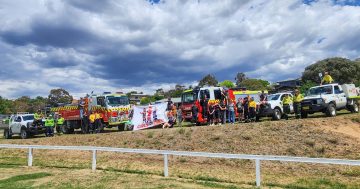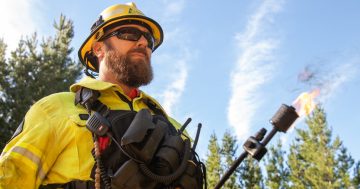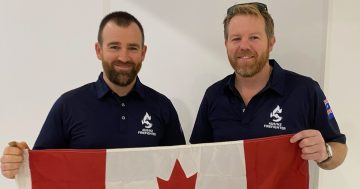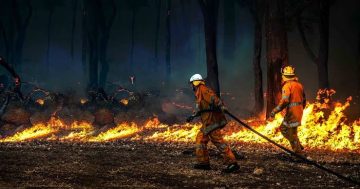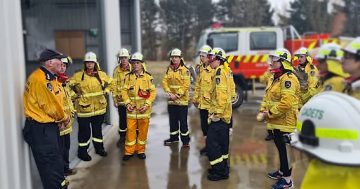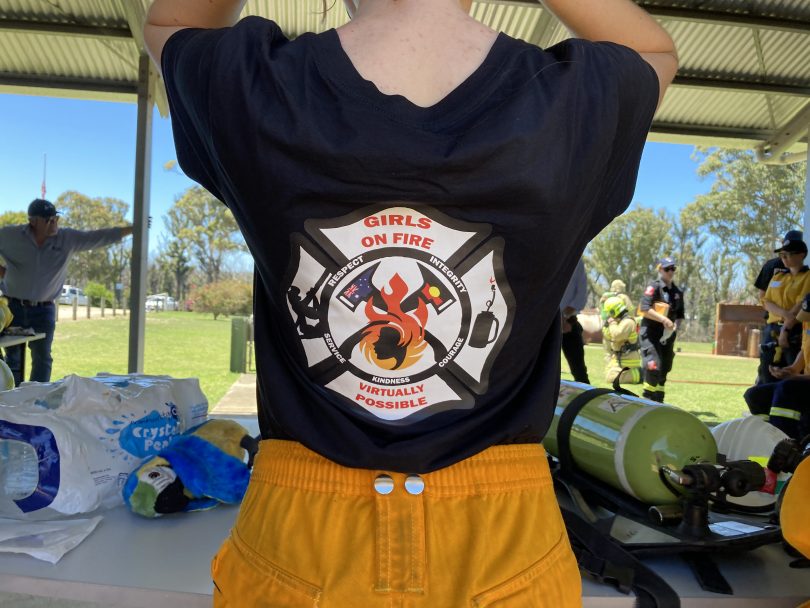
The Girls on Fire program aims to increase the number of women and ethnically diverse people in Australian firefighting agencies. Photo: Alex Rea.
There was a multi-agency approach to fire training on Sunday, 15 November, as 12 girls were given a taste of firefighting at the Eurobodalla Fire Training Centre in Mogo, on the NSW South Coast.
The Girls on Fire program brings potential new recruits together with the NSW Rural Fire Service, Fire and Rescue NSW, NSW National Parks and Wildlife Service, and Forestry Corporation of NSW.
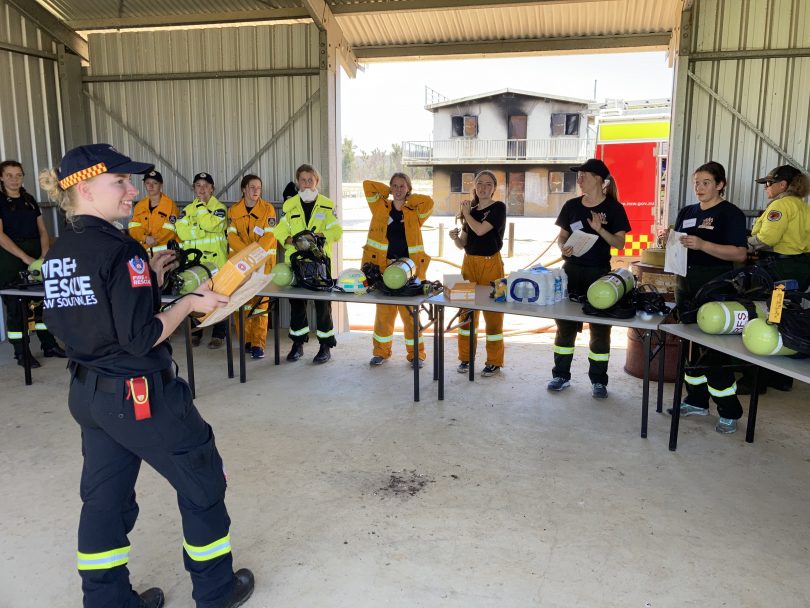
The 12 participants in the Girls on Fire day on 15 November were from all over the NSW South Coast and Albury. Photo: Alex Rea.
The Girls on Fire program is usually run as a week-long camp, but due to COVID-19 restrictions it is being held in various locations around NSW as a one-day event called Virtually Possible: Girls Fire Academy 2020.
The program will combine online learning with virtual workshops and a one-day fire operations practical session.
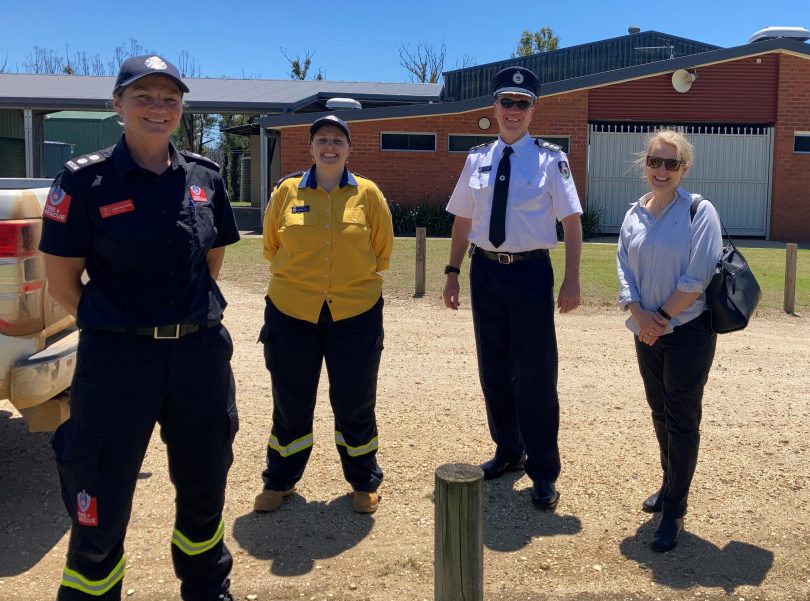
From left: Bronnie Mackintosh, Girls on Fire director; Kelwyn White, NSW Rural Fire Service; Goetz Graf, NSW Rural Fire Service Area Commander; and Tonia Graf. Photo: Alex Rea.
“This hybrid program is allowing us to reach more areas in NSW,” says Girls on Fire director Bronnie Mackintosh, who was awarded a $10,000 grant from Westfield Local Heroes for the program.
Girls on Fire aims to promote and increase the number of women and ethnically diverse people in Australian firefighting agencies by learning from other countries.
In Australia, less than four per cent of urban fire agencies comprise women, and less than two per cent are ethnic minorities. Australia-wide, there is only one female fire Inspector and no women or ethnic minorities with higher rank.
Bronnie is a Winston Churchill Fellowship winning firefighter with Fire and Rescue NSW. She holds the rank of Station Officer in Newcastle, and is on a mission to learn from firefighting agencies around the globe that have strong female representation so she can bring back the lessons to Australia.
Member for Bega Andrew Constance, Eurobodalla Shire Council Mayor Liz Innes and NSW Rural Fire Service Chief Superintendent and Area Commander Goetz Graf were present at the Girls on Fire day to watch participants being put through training at the purpose-built facility on the Princes Highway, just south of Mogo.
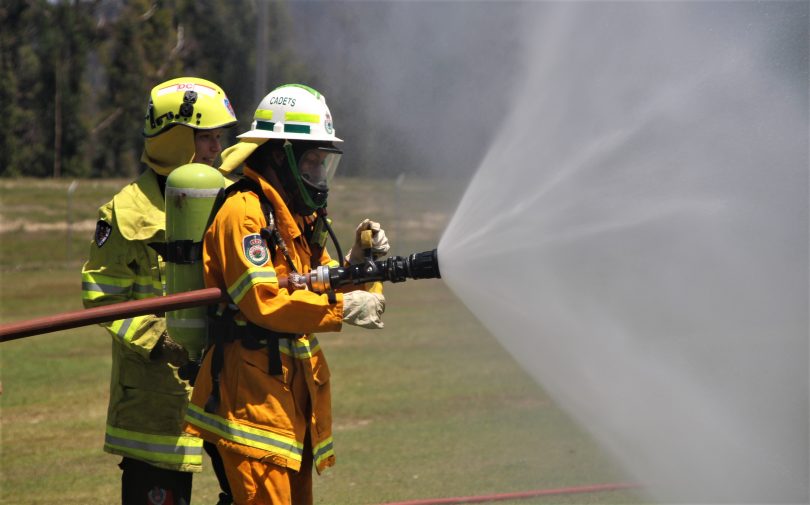
Girls on Fire participants got hands-on experience extinguishing a car fire. Photo: Alex Rea.
In 2020, more than 65 girls have been part of the Girls on Fire program.
Kelwyn White, from the NSW Rural Fire Service, says it “just give the girls a taste of what it’s like so they can decide if it’s something they would like to volunteer for or take on as a career”.
Many of the girls attending experienced the Black Summer bushfires firsthand. Most of them came from the NSW coastal areas which were hit hard, and one came from as far away as Albury.







